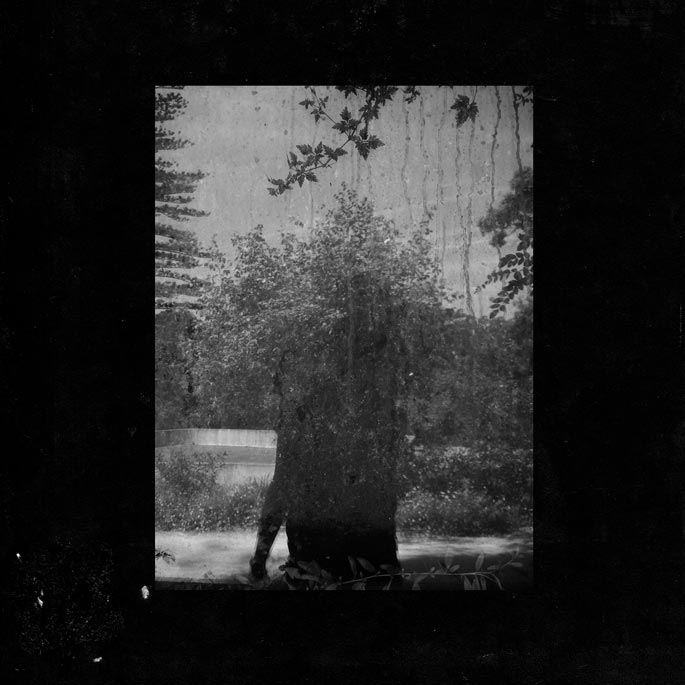This ambiguity of meaning reveals a hidden face in Grouper’s new album, which is much concerned with uncertainty, in marginal spaces that don’t necessarily add up or make sense. The word “maybe” occurs multiple times, alongside dream language and landscapes, of cycles and mountainous bodyscapes.
 Too often, when we talk about music, we talk about it in declarative, categorical terms, as if we were ranking market positions and cataloging guitar solos. This way of thinking and talking about music completely negates the purpose of Grouper’s music, and leads to a culture where only the brashest, hypiest, blaring-est musics get heard; the equivalent of everyone shouting to be heard at a dinner party.
Too often, when we talk about music, we talk about it in declarative, categorical terms, as if we were ranking market positions and cataloging guitar solos. This way of thinking and talking about music completely negates the purpose of Grouper’s music, and leads to a culture where only the brashest, hypiest, blaring-est musics get heard; the equivalent of everyone shouting to be heard at a dinner party.
Instead, Liz Harris’ music invites you to lean in and listen closer.
It begins with the frogs, cicadas, and pulsing drums of “Made Of Metal” acting like a beacon, pulling you towards the decrepit structure where Liz Harris, the person, or the character she’s inhabiting, tells you stories of her wasted romances and longing regrets over the simple creak of an unadorned upright piano. That’s the most striking thing about Ruins; it’s a suite of unadorned piano ballads. Instead of conjuring a feeling of blasted, dooming spectral folk music, Harris here evokes a kind of slight chamber music, beautiful but bittersweet, that strongly recalls the Gnossienes and Gymnopedes of Erik Satie.
Erik Satie is a relevant touchstone, as he pioneered the concept of “furniture music” — music you could leave on and live with, a forerunner of modern ambient. Liz Harris’ music works best when you live with it, letting her sometimes submerged words cut through the miasma of recording fidelity, when she shows herself, plain and raw. It’s not direct, and it’s not immediate. It’s subtle and sidelong, and yields so many treasures, when you take the time and really let it sink in.
Take the next two songs, some of the loveliest offerings you’re likely to hear on vinyl this year. “Clearing” is only a very simple two-note piano melody, doubled by the vocals in a heartbroken sing-song. “Sometimes I wish none of this had ever happened,” she sings to someone who is, “in and out of shadows.” It’s one of the saddest, sweetest, most poignant songs you’ll hear, and it’s not even obvious what precisely she’s singing about. But there’s a sense of ache, regret, and longing in the hesitation with which she depresses the ivories, in the way she lets the notes hang and breathe. It’s about what’s not being said, in this instance; it’s about the implications.
And “Call Across Rooms,” the album’s lead single, is just a gorgeous slight Satie-esque slice, full of cosmopolitan charm, perfect for drawing rooms or late night tea. She’s made something classic and timeless, with only a couple of chords and elementary chromatic melodies.
Grouper’s music has always had this dream-like simplicity, but in the past, it was swathed in a weightless chorus of machine loops and endless echoes. On Ruins, Harris has peeled back the layers, allowing us a partly-cloudy view of the cabin in Portugal where it was recorded in 2011. There’s still plenty of atmosphere, however; the frogs and cicadas make several appearances and the beeping of a microwave pulses on “Labyrinths”, alongside the creaking resonance of the piano throughout.
In a time when it is so easy, or so common anyway, to make pitch perfect studio glossy productions with big budget and big hype, we need this vulnerability, this raw realness. Even if we enjoy it, I think we are suspicious of glossy pop music; it’s too plastic, too airbrushed, too perfect. It has the scent of marketing about it, and we feel like we’re being manipulated, even if we love it. But then there’s the spare, sparse soundworlds of Liz Harris, who will not shout to be heard, who will not bend to conventions — who has done what she has always done, and people gravitate towards nonetheless, like moths to moonlight.
Grouper is a true gem of the underground, representing a decade of lost children, kneeling on concrete floors, as looper pedals illuminate their faces like alchemist’s crucibles. She represents those who hope for heaven and conjure fresh hells with cheap battery-powered keyboards, pouring their dream lives and nightmares onto spraypainted cassettes, even while everyone was screaming in their ear to, “Give up, give up, give up!” Liz Harris seems like a talent made good from the no-fi/noise underground, and, amazingly enough, did not do so by upping her fidelity or polishing her song structures; she’s built a world for herself by being simply, amazingly, consistently good, from start to finish. And Ruins is a triumph of a personal, intimate, elegant chamber recording.
So lean in, and let Liz Harris tell you a story. Make sure you’re really listening, and not just waiting for your chance to talk.
An audio-visual collaboration with Paul Clipson
Ω







